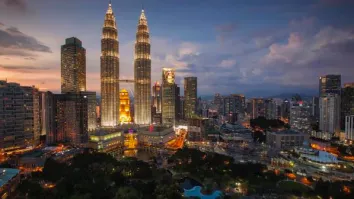
Seoul prime office absorption underperforms 10-year average
Absorption only reached 133,300sqm in 2024.
Data from Savills revealed that in 2024, the net absorption of Seoul’s prime office space was recorded at 133,300 sqm, representing only 59% of the 10-year average (2015– 2024) of 225,900 sqm. This reflects constrained tenant mobility in a market where vacancy rates consistently remained around the 3% range throughout the year.
“Additionally, net absorption declined for three consecutive quarters, driven in part by tenant exits as some companies sought to reduce costs in response to rising rental expenses. In YBD, the completion of TP Tower temporarily increased vacancy rates. However, financial tenants undergoing headquarters sales, redevelopment, or remodeling quickly pre-leased and occupied the building, resolving vacancies within two quarters,” Savills said.
Here’s more from Savills:
As of 2024 year-end, Seoul overall prime office vacancy rate stood at 3.5%, which by district came in at 2.8% for CBD, 2.3% for GBD, and 6.2% for YBD. The market has maintained sub-4% vacancy rates for six consecutive quarters since Q3/2023, highlighting a shortage of leasable space that continues to restrict tenant movement.
An analysis of relocations by lease type in 2024 revealed that Prime-to-Prime relocations accounted for 33% of activity, a significant increase from 22% in 2023. Conversely, Secondary-to-Prime upgrades fell to 36%, down from 41% in the previous year, reflecting growing cost pressures on tenants. The proportions of Expansions (15%) and New leases (17%) remained stable year-over-year. Overall, vacancy resolution leaned toward smaller-scale expansions by existing tenants rather than large-scale new leases.
By industry sector, financial institutions dominated leasing demand in 2024, accounting for 53% of newly-leased space. Technology firms followed at 11%, with manufacturing companies at 10%.
In the CBD, key contributors to demand included Shinhan Bank (Finance) and Korea Zinc (Manufacturing). In GBD, large gaming companies such as Nexon and NCSoft filled vacancies, while startups like HeyDealer and Riiid leased smaller spaces, reinforcing GBD’s reputation as an IT hub.
In YBD, financial institutions led take-up activity, with major tenants like Shinhan Financial Group affiliates, Kiwoom Securities, and Yuanta Securities occupying TP Tower and Anchor One. Consequently, the proportion of financial-sector tenants in YBD increased by 4%p from 2023 to reach 58%, further solidifying YBD’s identity as a financial hub.



















 Advertise
Advertise






